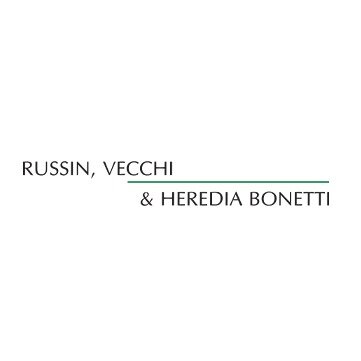Best Trademark Lawyers in Santo Domingo Este
Share your needs with us, get contacted by law firms.
Free. Takes 2 min.
List of the best lawyers in Santo Domingo Este, Dominican Republic
About Trademark Law in Santo Domingo Este, Dominican Republic
Trademark law in Santo Domingo Este, and more broadly in the Dominican Republic, is designed to protect the rights of businesses and individuals by preventing unauthorized use of distinctive symbols, names, and logos that differentiate goods or services. The Dominican National Office of Industrial Property (ONAPI) is the governmental body tasked with overseeing trademark registration and protection. Registering a trademark grants the owner exclusive rights to its use, providing a crucial tool for businesses to establish their brand in a competitive market.
Why You May Need a Lawyer
Individuals or businesses may require legal assistance in trademarks under several circumstances:
- Registration: Navigating the process to register a new trademark, ensuring it complies with all legal requirements.
- Infringement: Addressing cases where another party is using an identical or similar trademark that causes confusion.
- Disputes: Resolving disputes with other trademark holders, which may involve opposition proceedings or litigation.
- Renewals and Modifications: Ensuring proper renewal of existing trademarks and making any necessary modifications to registrations.
- Licensing: Drafting and negotiating licensing agreements to allow others to use the trademark under specific conditions.
Local Laws Overview
The Dominican Republic’s trademark law is primarily embodied in Law No. 20-00, which aligns with the regulations of the World Intellectual Property Organization (WIPO) and the Paris Convention for the Protection of Industrial Property. Key aspects include:
- Registrability: Trademarks must be distinctive and not deceive the public regarding the nature, characteristics, or geographical origin of the goods or services.
- Priority: Trademark rights are granted on the basis of registration rather than first-use, emphasizing the importance of registering your mark.
- Duration and Renewal: Trademark registrations are initially valid for ten years, with the possibility of indefinite renewals for successive ten-year periods.
- Enforcement: Trademark holders have the right to take legal action against infringers to prevent unauthorized use.
Frequently Asked Questions
1. What is the process for registering a trademark in Santo Domingo Este?
To register a trademark, you must file an application with ONAPI, including details such as the trademark's design and the classes of goods/services it covers. It's prudent to conduct a search to ensure no similar trademarks exist.
2. How long does it take to register a trademark in the Dominican Republic?
The registration process typically takes around 12 to 18 months, depending on the complexity and any oppositions encountered during the examination period.
3. Can I register a trademark for any type of goods and services?
Yes, but the trademark must be distinctive, not mislead the public, and not be contrary to public order or morality. ONAPI classifies goods and services according to the Nice Classification system.
4. What are common reasons a trademark application might be refused?
Common reasons include lack of distinctiveness, similarity to existing trademarks, or if it’s considered descriptive or generic.
5. How can I enforce my trademark rights?
A trademark owner can initiate civil legal proceedings against parties using their trademark without permission to stop further infringement and potentially obtain compensation.
6. How can I oppose a trademark application?
Once a trademark application is published in the Official Gazette, there is a 45-day period during which third parties can file an opposition.
7. Is my Dominican trademark valid internationally?
No, trademarks registered in the Dominican Republic offer protection only within the country. International protection requires separate registrations or treaties like the Madrid Protocol.
8. What are the risks of not registering a trademark?
Without registration, you may have difficulty enforcing your rights and risk losing exclusivity if another party registers a similar mark.
9. Can a trademark be sold or transferred?
Yes, trademarks can be transferred or sold through assignment agreements that need to be registered with ONAPI to be effective against third parties.
10. Can I use my trademark before it is registered?
While you can use your trademark, it’s advisable to wait until registration is secured to ensure full legal protection against infringement.
Additional Resources
If you need more information or assistance, consider reaching out to these organizations:
- Dominican National Office of Industrial Property (ONAPI): The official governmental body responsible for trademark registration and protection.
- Chamber of Commerce and Production of Santo Domingo: Provides resources and support for businesses, including intellectual property guidance.
- Local Law Firms: Many law firms specialize in intellectual property law and offer consultations regarding trademark issues.
Next Steps
If you need legal assistance regarding trademarks in Santo Domingo Este, consider the following steps:
- Consult a Trademark Attorney: Seek out legal advice from an attorney specializing in intellectual property to understand your rights and options.
- Conduct a Trademark Search: Perform a thorough search to make sure your trademark is unique and doesn't infringe on existing marks.
- Prepare Your Application: Gather necessary documents and information for your trademark application and submit it to ONAPI.
- Monitor Your Application: Keep track of your application status and be prepared to respond to any opposition or requests for additional information.
Lawzana helps you find the best lawyers and law firms in Santo Domingo Este through a curated and pre-screened list of qualified legal professionals. Our platform offers rankings and detailed profiles of attorneys and law firms, allowing you to compare based on practice areas, including Trademark, experience, and client feedback.
Each profile includes a description of the firm's areas of practice, client reviews, team members and partners, year of establishment, spoken languages, office locations, contact information, social media presence, and any published articles or resources. Most firms on our platform speak English and are experienced in both local and international legal matters.
Get a quote from top-rated law firms in Santo Domingo Este, Dominican Republic — quickly, securely, and without unnecessary hassle.
Disclaimer:
The information provided on this page is for general informational purposes only and does not constitute legal advice. While we strive to ensure the accuracy and relevance of the content, legal information may change over time, and interpretations of the law can vary. You should always consult with a qualified legal professional for advice specific to your situation.
We disclaim all liability for actions taken or not taken based on the content of this page. If you believe any information is incorrect or outdated, please contact us, and we will review and update it where appropriate.










